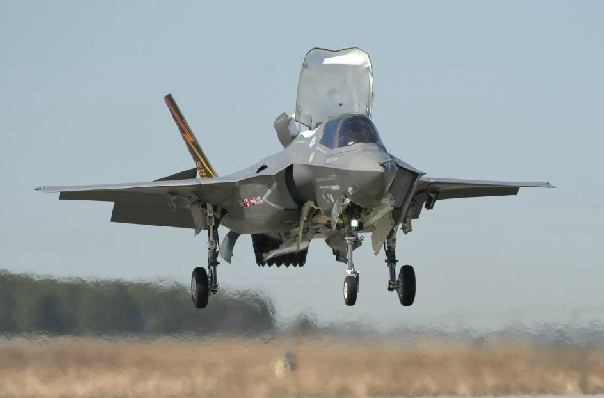Time to end the cyber-spying blame game
By Shen Yi (Chinadaily.com.cn) Updated: 2015-01-21 16:16
|
 |
|
The F-35 Lightning II, also known as the Joint Strike Fighter (JSF), integrates advanced very low observable stealth into a supersonic, highly agile 5th generation fighter. [Photo/Agencies] |
Responding to a report in a German magazine that Chinese cyber spies stole sensitive data on defense programs, such as the United States' F-35 Lightning II fighter jet, China's Foreign Ministry spokesman Hong Lei said on Monday that such allegations are "totally groundless and unproven".
Such baseless accusations are not new for China, which itself has been at the receiving end of cyberattacks. Chinese cyber-spying might have increased the cost of the F-35 Joint Strike Fighter's and delayed its production, said Aviation Week, a New York-based information and services provider specializing in aerospace and intelligence, in 2012.
These allegations are being leveled at China to "prove" that it "stole" data on the US fighter jet to develop its own Chengdu J-20 and Shenyang J-31.
But they seem rather contradictory in the light of the explanation given by Michael Hayden, former director of Central Intelligence Agency, to defend the US after former National Security Agency operative Edward Snowden exposed Washington's surveillance program in 2013.
The NSA surveillance program, Hayden said, was designed to collect intelligence to safeguard state security, while China's "cyber-hacking" served as a tool for Beijing to launch unfair economic competitions.
Assuming that China did collect information from cyberspace to improve its fighter jets, how is it not fair? Didn't it help the country to safeguard its national security?
At the most, it only shows that China's intelligence organ did a good job, for that is exactly what the US wants the NSA to do for its own national security.
Allegations of cyber espionage, especially by the West, have always been aimed at slandering China — that it has made technological breakthroughs only by plagiarizing Western innovations.
This perception remains unchanged since Washington issued the Cox Report in 1999 accusing China of using spies to steal nuclear weapons' technology from the US.

I’ve lived in China for quite a considerable time including my graduate school years, travelled and worked in a few cities and still choose my destination taking into consideration the density of smog or PM2.5 particulate matter in the region.











